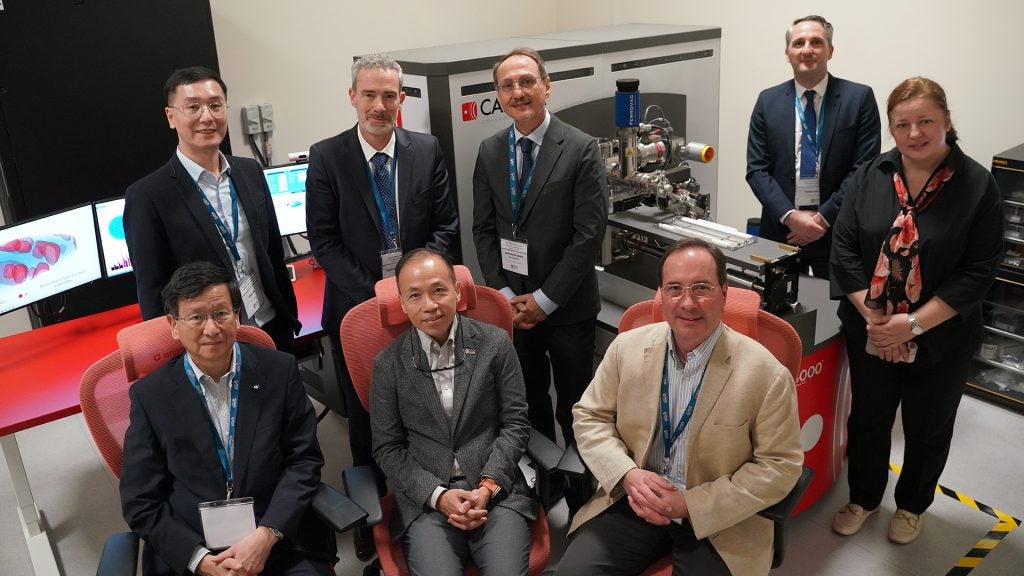
Asst Prof Chen Po-Yen from NUS Chemical and Biomolecular Engineering has won two eminent awards for his innovative research into next-generation functional materials for wearable electronics and emerging soft robots.
With his works, Asst Prof Chen aims to develop and integrate novel composite materials into innovative 'soft robots', to enable soft machines to have built-in sensation and wireless communication capabilities while moving or operating. To create deformable materials suitable for soft robotics, he and his team incorporate functional nanomaterials - especially two-dimensional (2D) materials - into soft matter, which then paves the way for robotic materials to be multifunctional, deformable and reconfigurable.
Asst Prof Chen and his lab have developed multiple strategies to integrate a wide range of 2D materials with various soft matter, and have produced reconfigurable and multifunctional metallic backbones for the fabrication of 'origami robots' with built-in strain sensing and wireless communication capabilities.
"We believe our multifunctional robotic materials which possess built-in sensing and wireless communication capabilities can be applied to various soft exoskeletons and robot end-effectors, to reduce the overall weight and energy consumption of integrated robotic systems. For end users, this will mean smarter, lighter, flexible, and power-efficient robots in the future," Asst Prof Chen explained.
As recognition for his innovative work in this area, in September 2020, he received the '35 Under 35 Award' given out by the American Institute of Chemical Engineers (AIChE). In addition, in December 2019, he was named as a winner of the 'Innovators under 35 Asia Pacific' award by the MIT Technology Review.
AIChE's 35 Under 35 Award
The AIChE is the world's leading organisation for chemical engineering professionals, with more than 60,000 members in over 110 countries. This year's '35 Under 35 Award' recognises the outstanding achievements and contributions from some of the best and brightest young chemical engineers around the world.
There are 35 winners in total, with each nominee being younger than 35 years old. This year, Asst Prof Chen is one of only two award recipients based in Asia.
Nominees are critiqued on the excellence shown in their specific award category, their professional activities outside of work relating to the award category, and their potential for future growth within AIChE and their career field.
Asst Prof Chen was nominated and won in the category of 'Chemicals & Materials' which places emphasis on the design, generation, and characterisation of chemical products and functional materials systems.
MIT Technology Review's Innovators Under 35 Award
'Innovators Under 35' is the most prestigious recognition from MIT Technology Review. 'Innovators Under 35 Asia Pacific' honours the best 20 young talents from Australia, Hong Kong S.A.R., New Zealand, Southeast Asia, and Taiwan whose superb technical work promises to change the world.
20 innovators are given tribute annually at MIT Technology Review's EmTech Asia conference. The list recognises the development of new technology or the creative application of existing technologies to solve global problems in industries such as biotechnology, materials, computer hardware, energy, transportation, communications, and the Internet.
Asst Prof Chen won this award in the category of 'Nanotechnology & Materials' for his work assembling 2D materials into stretchable electronics and soft robotics. With this award, MIT Technology Review aims to create a community for the brightest and youngest minds of the region to connect with each other and escalate the impact of their achievements.
"My team and I are deeply encouraged by these two awards, which represent important milestones and support for our work. This acknowledgement from the scientific community gives us the confidence to push ahead with our research, and also motivates us, as chemical engineers, to solve real-world problems by providing novel yet practical solutions," Asst Prof Chen added.
This article was first published on 17 Sep 2020 in NUS News.





